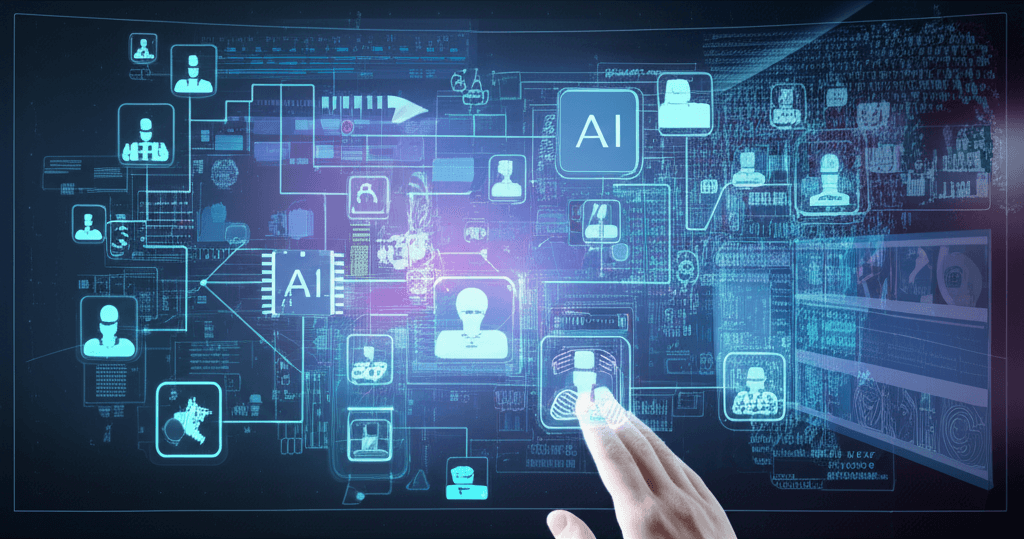PwC and Supervity Partner to Deliver Cognitive AI, Slash Workloads 60%
PwC and Supervity unleash cognitive AI agents, moving beyond RPA to slash manual workloads by 60%.
August 26, 2025

In a significant move to reshape enterprise operations, professional services giant PwC has entered into a strategic partnership with AI firm Supervity. The collaboration aims to slash manual workloads for businesses by up to 60 percent by deploying intelligent AI agents, signaling a pivotal shift from traditional robotic process automation (RPA) to a more sophisticated, cognitive digital workforce. This alliance will merge PwC's deep industry consulting and transformation expertise with Supervity's advanced AI agent platform to deliver industry-specific solutions, initially targeting key business functions such as finance, HR, IT, and shared services.[1][2] The partnership is designed to help enterprises evolve beyond basic automation, fostering an effective and dynamic digital workforce that can handle complex tasks and adapt to changing workflows.[2][3]
The collaboration addresses a critical juncture in the evolution of workplace automation. For years, companies have relied on RPA bots to handle repetitive, rules-based tasks. However, these legacy systems are often brittle, struggling with unstructured data and breaking when underlying applications or processes change.[4] The PwC and Supervity partnership seeks to overcome these limitations by introducing AI agents that can read, understand, and act on complex information much like a human employee.[1] Supervity's technology is built on a multi-agent architecture where different AI agents can collaborate to manage and execute complex workflows from end to end.[5] This approach moves beyond simple task automation to orchestrate entire business processes, from invoice processing in finance departments to employee onboarding in HR.[5][2] PwC will guide clients through this transition, leveraging its extensive experience in business process re-engineering and workforce transformation to ensure the technology is integrated effectively and delivers measurable outcomes.[6][7]
At the heart of this initiative is Supervity’s innovative "Bot-to-Agent" (B2A) framework, designed to help organizations seamlessly upgrade their existing automation infrastructure.[4] Unlike traditional RPA, Supervity's AI agents are designed to be cognitive and adaptive. They leverage a combination of generative AI, natural language processing, and machine learning to interpret unstructured documents, understand the context of emails, and follow dynamic standard operating procedures.[8][1] For example, an AI agent specializing in accounts payable can receive a batch of invoices, extract the relevant data, perform a three-way match against purchase orders and goods receipts, and even handle exceptions before posting the transaction in an ERP system like SAP.[5] This ability to reason and self-heal reduces the need for constant human intervention and maintenance, a common pain point with older automation technologies.[4] PwC will provide the strategic oversight to identify which processes are ripe for this kind of intelligent automation and will manage the implementation to align the AI's performance with key business goals.[2]
The implications of this partnership for the broader AI and professional services industries are profound. It signifies a maturation of the automation market, where the focus is shifting from pure cost-cutting to creating genuine operational intelligence and business agility. PwC’s "human-led, tech-powered" approach emphasizes that these AI agents are not meant to simply replace human workers but to augment their capabilities.[7] By automating tedious, high-volume tasks, employees are freed up to focus on more strategic, high-value work that requires critical thinking and human judgment.[8] PwC's role will be crucial in helping organizations manage this change, redesigning roles and career paths to create a collaborative environment where humans lead teams of AI agents.[6] This model of a blended human-digital workforce is poised to become the new standard for high-performing organizations, enabling them to innovate faster and respond more dynamically to market changes.[7]
In conclusion, the alliance between PwC and Supervity represents a calculated and strategic response to the growing demand for more intelligent and resilient enterprise automation. By combining Supervity's cutting-edge AI agent technology with PwC's deep domain and transformation expertise, the partnership offers a clear path for businesses to move beyond the constraints of legacy RPA. The ambitious goal of a 60 percent reduction in manual workloads highlights the confidence both firms have in their combined ability to deliver a new generation of digital workers.[2] As this collaboration rolls out, it will likely serve as a key case study in how to successfully integrate advanced AI into the core of enterprise operations, ultimately fostering a more efficient, agile, and strategically-focused workforce for the future.